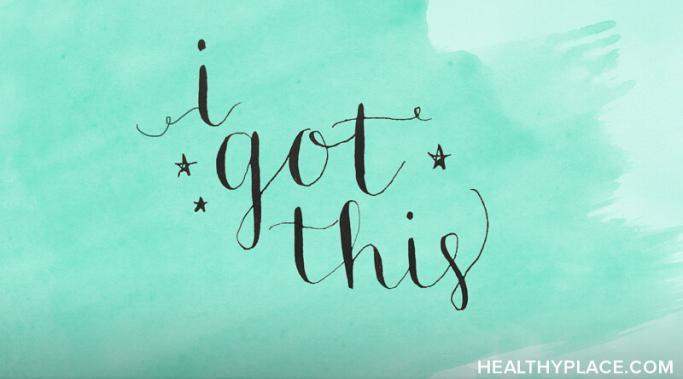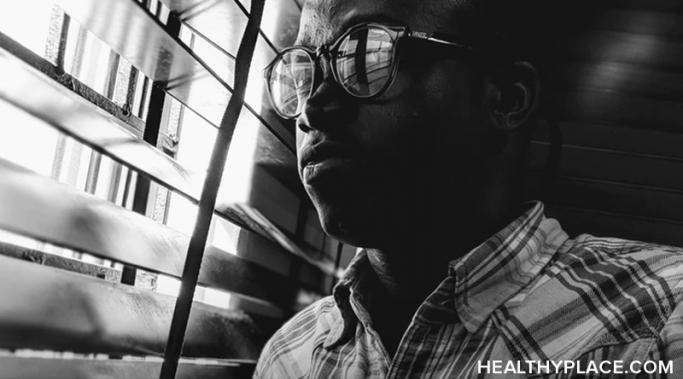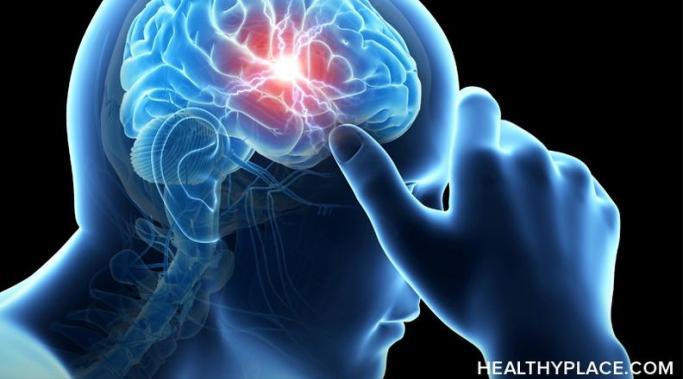Anxiety can hurt. It can be emotionally painful, and it can be physically agonizing, too--so much so that physical symptoms of anxiety frequently send people to their doctor's office or hospital emergency department (ED). Almost 1.25 million people visited an ED for physical symptoms of anxiety annually between 2009 and 20111. It's important to seek medical help to rule out serious and potentially life-threatening conditions; however, it's frustrating to be discharged with a shrug and casual statement that "it's just anxiety." Read on to learn more about anxiety's physical symptoms and how to feel better when anxiety hurts.
Anxiety-Schmanxiety
Art is an interesting thing. All of us are aware of – and can personally attest to – having their lives changed after having read a book or heard a song. What’s surprising is how this impact can come from the most unexpected of sources.
Imagine being able to use anxiety-reducing phrases and feeling empowered to live your best life. Can words really have such influence? As anyone who lives or has lived with anxiety knows painfully well, anxiety is controlling and overpowering. It can shut down anybody, no matter who they are, how they live, or the hopes and dreams they hold dear. Despite this, there are many things we can all do to reduce anxiety and move forward. One such anxiety-reducing method is to adopt some empowering phrases, such as the ones below.
Could there be a good New Year resolution for the anxious mind? This isn’t a post about my specific New Year’s resolutions – those are personal. Rather, this is about New Year’s resolutions in general, and how they can be invaluable for someone with an anxious mind.
Have you ever second-guessed yourself, questioning your words or actions? Many people place second-guessing at or near the top of their list of agonizing effects of anxiety. At best, it can knock down your sense of inner peace and happiness a notch or two. At worst, anxiously second-guessing our choices can cause us to berate ourselves relentlessly, unnecessarily assume blame, question whether we're good enough, and begin to pull away from a connected, active lifestyle. We don't have to let anxiety have this life-limiting and frustrating effect on us. Stop second-guessing and become self-assured in what you say and do.
Feeling anxious and busy--too busy--seems to be an epidemic. Feeling strapped for time negatively impacts a lot of lives. Sometimes this is a signal that big changes are needed; however, sometimes changing what is overwhelming is either impossible (at least immediately) or is undesirable ("busy" doesn't always mean "bad") There are ways to deal with anxiety and busyness without giving your life a major overhaul.
A few weeks ago, I outlined why I think American society causes anxiety. I want to revisit this topic again, but this time focus on one particular social plague: what Medium’s Gabriella Rackoff calls: "the cult of the entrepreneur."
Building a network for anxiety support can be an important part of overcoming anxiety. A support system of any type can empower you to take the necessary steps to overcome anxiety and create the quality life you want to live. When you have an anxiety support network on your side, it's comforting and can help you gather the courage to do what it takes to beat anxiety. As you build such a network, don't forget to include the most powerful support person of all: yourself.
Can we avoid holiday anxiety? After all, it’s ingrained in our culture that the holidays are a stressful time. It’s such a cliché that it seems as though every major holiday film and TV special, from "A Charlie Brown Christmas" to "Die Hard", is predicated on some kind of anxiety.
If you pause to listen to your anxiety, you might find that it has something helpful to say. Something called cognitive dissonance, a conflict within us, is a part of much of our anxiety no matter what type of anxiety we're dealing with. Together, these two forces can shout painfully at us, but behind the shouts is often a whisper of wisdom that, if we listen, we can use to quiet both cognitive dissonance and anxiety.









